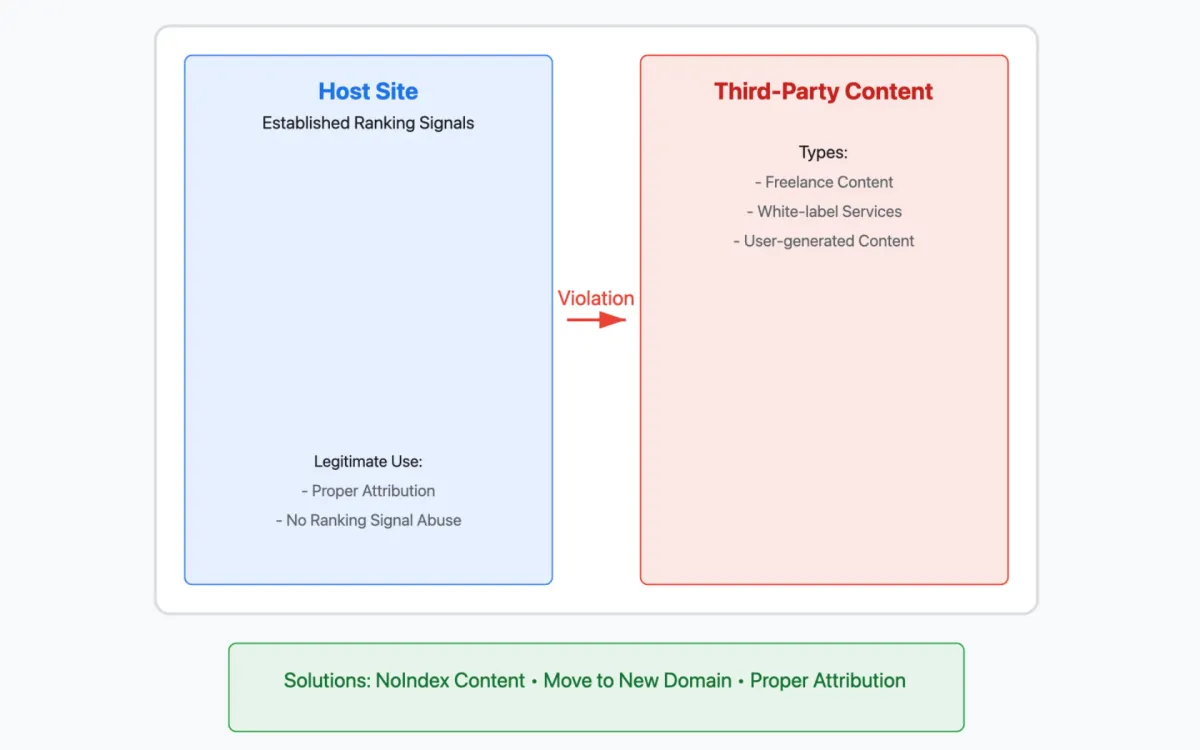
Google has enhanced its site reputation abuse policy with comprehensive frequently asked questions (FAQs), marking a significant update to the guidelines first introduced in November 2024. According to the announcement made on December 6, 2024, just one day before this publication, the new FAQs address critical aspects of third-party content management and manual action procedures.
The policy expansion comes as part of Google's broader initiative to maintain search quality and combat spam tactics. According to Google's Search Central blog, the original policy was implemented to prevent the exploitation of established sites' ranking signals by third-party content publishers.
Chris Nelson, speaking on behalf of the Google Search Quality team, detailed how the company has reviewed various scenarios involving different levels of first-party involvement since the policy's initial launch. These situations encompass white-label services, licensing agreements, and partial ownership arrangements.
A critical finding from Google's evaluation revealed that the degree of first-party involvement does not alter the fundamental third-party nature of the content. The search engine's position remains firm that attempting to leverage a host site's ranking signals constitutes a policy violation, regardless of oversight or involvement levels.
The updated policy documentation specifically defines site reputation abuse as "the practice of publishing third-party pages on a site in an attempt to abuse search rankings by taking advantage of the host site's ranking signals."
Technical implementations and compliance
The new FAQs provide specific technical guidance for site owners facing manual actions. According to the documentation, merely implementing a noindex tag on problematic content does not automatically resolve a manual action. Site owners must explicitly communicate such changes through Search Console's reconsideration request system.
For content relocation scenarios, Google outlines three distinct approaches with varying implications:
Subdirectory/subdomain transfers within the same domain
- Not recommended as a solution
- May trigger additional spam policy violations
- Could lead to broader punitive actions
Migration to another established site
- Resolves the original site's violation
- May create new violations at the destination site
- Requires careful consideration of the destination site's reputation
New domain deployment
- Most favorable option if the domain lacks established reputation
- Must comply with existing spam policies
- Requires proper technical implementation
Link Management Requirements
The policy update includes specific technical requirements for managing links after content relocation:
- Redirects are explicitly discouraged between sites with manual actions
- Cross-site linking must implement nofollow attributes
- Documentation emphasizes the importance of proper affiliate link markup
Impact on Content Types
Google's clarification addresses several content categories:
Freelance Content
- Classified as third-party content
- Not inherently violative
- Requires evaluation of ranking signal exploitation
Affiliate Content
- Permitted with proper markup
- Must follow affiliate disclosure guidelines
- Not automatically considered abusive
White-label Services
- Subject to third-party content evaluation
- Business arrangement complexity does not override policy
- Requires assessment of ranking signal usage
Implementation timeline
The original policy announcement from November 19, 2024, established the foundational framework. The December 6, 2024, update expands the implementation details through comprehensive FAQs, providing site owners with actionable guidance for compliance and remediation.
Search Console Integration
Site owners receiving manual actions will be notified through their registered Search Console accounts. The process requires:
- Manual action notification review
- Implementation of necessary changes
- Submission of reconsideration request
- Documentation of specific remediation steps
Google emphasizes that automatic removal of manual actions is not supported, even with technical implementations like noindex tags. All changes require explicit communication through the reconsideration request system.
The policy enhancement reflects Google's continued focus on maintaining search result quality while providing clear guidelines for site owners to ensure compliance. Site owners are advised to review the updated documentation and implement necessary changes to align with the clarified requirements.

